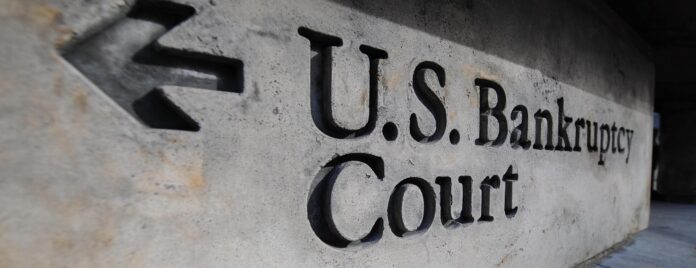A “fraudulent” bankruptcy petition submitted on behalf of a major Burger King franchisee caught lawyers by surprise but showcased the ability of bankruptcy courts to quickly root out shady conduct.
Carrols Corp., the largest Burger King franchisee in the US, had at least five bankruptcy petitions submitted in its name over the past week by an individual with an apparent history of frivolous legal actions. The company quickly said the bankruptcy petitions were fake, and its general counsel said it’s “not a financially troubled company.”
Though abuse of the bankruptcy system isn’t unheard of, the Carrols case was notable for the audacity of the filer, who could face ramifications for his actions.
“I feel like I’ve seen some pretty insane things, but this is new to me,” said Stacy A. Lutkus, a McDermott Will & Emery restructuring partner who worked as a clerk to the judge who oversaw the Lehman Brothers bankruptcy.
Faking Bankruptcy
The Carrols petitions, filed under Chapter 15 of the US bankruptcy code, appear to have been mailed in by Robert W. Johnson of Buffalo, N.Y. Johnson appears to have a prolific history of submitting pro se lawsuits, including against Donald Trump,
Johnson listed himself as a bankruptcy trustee in paperwork for the Carrols filings. When Bloomberg Law called the phone number listed on the petition, the man who answered said he wouldn’t agree to an interview unless Bloomberg Law paid him $100 million.
Lawyers observing the situation credited courts and the Justice Department’s bankruptcy watchdog, the US Trustee, for quickly working to get the bankruptcy petitions thrown out. A petition in the Eastern District of Wisconsin was docketed Feb. 9, a Friday, and the US Trustee moved to dismiss on Feb. 12, a Monday. Other courts moved quickly to reject the petitions without intervention from the US Trustee.
The petition contained numerous markers of fraud, the US Trustee said. It was submitted under the wrong chapter of the bankruptcy code, had unpaid filing fees, and didn’t indicate any authority for filing on behalf of the company. Chapter 15 is reserved for companies seeking US recognition of their foreign restructuring or insolvency proceedings.
“Their fraudulent conduct is malicious and should not be tolerated by this Court,” the US Trustee said in its expedited motion to dismiss.
Policing the System
The US Trustee didn’t speculate about the motivations for the fake filing, but lawyers were struck by its boldness.
“It’s just inexplicable; it doesn’t make sense,” said Jeffrey Cooper, a bankruptcy attorney at Rabinowitz, Lubetkin & Tully, LLC, a restructuring boutique.
Though this specific case was attention-grabbing, abuse of bankruptcy isn’t unprecedented, he said.
“Over the years, the process can be abused, but there are authorities in the US Trustee and the US attorney’s office and the courts to help police those abuses and to deal with them,” Cooper said.
The US Trustee has a unit to handle potential crimes that occur in bankruptcy and refers about 2,000 cases each year to US attorney’s offices for prosecution. The US Trustee declined to comment about any future steps it might take in the Carrols case.
The US Trustee doesn’t announce when it refers cases for prosecution, said Clifford J. White, the former director of the office.
“I wouldn’t assume, by the way, that this is the end of it,” White said of the Carrols case.
Preventing Abuse
Sometimes bankruptcy abuse takes the form of an involuntary bankruptcy petition, where a creditor seeks to force a company or person into bankruptcy, White said. The mechanism itself is legal and enumerated by the bankruptcy code, but is prone to bad faith uses, he said. In some cases, creditors use it to try to stop a company from taking an action they don’t like, he added.
Still, abuses are far more common in consumer cases than they are in corporate ones, making the Carrols situation unique, he said.
Bankruptcy courts are supposed to be accessible, providing opportunities for relief to consumer debtors, including those who don’t have lawyers. That access is weighed against fraud-prevention measures, White said.
“The point of it is not to create procedural roadblocks,” White said.
Court clerks often act as an early line of defense by detecting oddities in petitions, he added.
So far, Carrols petitions have been received by bankruptcy courts in Wisconsin, Illinois, New Mexico, Vermont, New Jersey, Colorado, and Washington state. The petitions were mailed in, suggesting more could be coming.
The Carrols filings show the latitude different courts have to address an unusual situation.
In the US Bankruptcy Court for the District of New Mexico, Judge Robert H. Jacobvitz ruled two days after Carrols petitions were received that they were insufficient to open a bankruptcy case. Judge Mary P. Gorman in the Central District of Illinois dismissed the petition because it was unsigned, incomplete, and the filing fee was unpaid.
In the Eastern District of Washington, a deputy clerk moved for dismissal because the fee was unpaid. In Vermont, Judge Heather Z. Cooper issued a notice of future dismissal because of unpaid fees and multiple irregularities that indicated a bad faith filing.
“Those cases will be generally worked out before the case goes too far,” he said.
